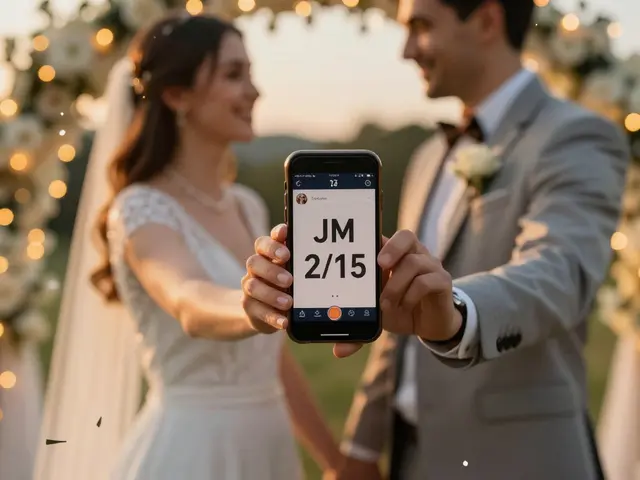
You landed here because you want straight answers. Do love coaches actually help? Which reviews can you trust? What’s a fair price in 2025? I’ve hired coaches, sat through more discovery calls than I care to admit, and read hundreds of client stories. The truth: coaching can change your dating life or your relationship-but only if you pick the right format and ignore the hype. This guide shows you how to read reviews like a pro, what each coaching option really delivers, and how to choose without wasting money or time.
TL;DR: Love Coaching Reviews That Actually Help You Decide
- Reviews are only useful if you know what to measure: method, outcomes, time frame, client fit, and post‑program results.
- Prices in 2025: $120-$350/hr for 1:1 coaches; $600-$2,500 for group programs; $15-$60/month for apps; $8,000+ for matchmakers with coaching.
- Red flags: guaranteed outcomes, high‑pressure sales, no credentials or supervision, vague testimonials, or coaches who diagnose mental health issues.
- Best format: 1:1 if your situation is complex; group if you want structure and accountability; apps for budget and daily reps; matchmakers for time‑poor execs.
- Expect 8-12 weeks for habits to stick. Look for measurable goals (e.g., number of dates, conflict tools used, weekly check‑ins), not just “feeling better.”
What to Look For (and Avoid) When Reading Reviews
Most reviews are emotional. That’s fine, love is emotional. But you need to pull out the numbers, the method, and the context. Here’s how to read a review without getting played by marketing.
love coaching reviews get a lot more useful when you filter them with five questions:
- Method: What tools did the coach use? (Attachment work, Gottman skills, cognitive-behavioral exercises, scripts for dating apps, conflict repair routines.)
- Outcome: What changed, exactly? (From 0 to 2 quality dates/week; resolved recurring fight; clear boundaries; better screening on apps.)
- Time frame: How long did change take? (Immediate results usually fade; look for 8-12 weeks and a 3‑month follow‑up.)
- Client fit: Who was the client? (Age, stage: newly single at 34 vs. divorced at 48 with kids vs. long‑term couple.)
- Transferable? Can you reuse the skill alone? (Scripts, frameworks, drills you can repeat without the coach.)
Now the red flags. If you see two or more, move on:
- Guaranteed timelines: “You’ll find your person in 90 days.” No one controls the market of humans.
- High-pressure sales: “This price expires today.” Coaching isn’t a Black Friday TV.
- No credentials or supervision: No training, no mentor, no ethical code. Ask for it.
- Vague testimonials: “She changed my life.” How? What metric moved?
- Boundary issues: Coaches giving therapy-level advice without being licensed, or messaging late at night as if they’re your partner.
Quick way to verify credibility:
- Search for a clear method page on their site (or ask for a 1‑pager). If they can’t explain their process in plain language, that’s your answer.
- Ask for anonymized case studies with before/after metrics (e.g., screenshots of dating app conversions, communication logs, homework samples-names hidden).
- Check training: ICF-accredited programs, Gottman Method training for couples work, trauma-informed training (e.g., somatic or EMDR context if relevant), or supervision with a licensed therapist when cases exceed coaching scope.
- Look for a written coaching agreement: scope, confidentiality, cancellation, and measurable goals.
“Coaching is partnering with clients in a thought‑provoking and creative process that inspires them to maximize their personal and professional potential.” - International Coaching Federation (ICF)
One more lens to read reviews: are they measuring compatibility or skill? You can’t control who you meet each week, but you can control how you screen, communicate, and repair. Reviews that celebrate new marriages are sweet; reviews that show better skills are the ones you can bank on.
For couples, a well‑known benchmark is from the Gottman Institute: about 69% of relationship conflicts are “perpetual.” The point isn’t to solve everything; it’s to learn how to manage those differences without tearing each other apart. If a coach claims they can erase all conflict, that’s fiction.

2025 Options Compared: Coaches, Programs, Apps, Matchmakers
You’ve got five lanes in 2025. Each has a place, and each shows up differently in real reviews. Here’s the lay of the land, with costs, time demands, and who tends to be happy afterward.
| Option | Typical Cost (2025) | Time Commitment | Common Length | Best For | Watch-outs |
|---|---|---|---|---|---|
| 1:1 Relationship/Dating Coach | $120-$350/hr; packages $1,200-$5,000 | 60-90 min weekly + 1-3 hrs homework | 8-16 weeks | Complex patterns, fast personalization | High variance in quality; no structure if coach is unorganized |
| Group Program (cohort) | $600-$2,500 total | 2-4 hrs/week live + community | 6-12 weeks | Accountability, budget value, peer energy | Less tailored; social anxiety for some |
| Self‑paced Course + Light Coaching | $200-$1,200 | 2-3 hrs/week | 4-8 weeks | DIY learners, skill drills | Easy to buy, hard to finish |
| AI Coaching App | $15-$60/month | 10-20 min daily | Ongoing | Daily reps, scripts, journaling prompts | Shallow for deep issues; privacy concerns |
| Matchmaking + Coaching | $8,000-$100,000+ | 1-2 hrs/week | 3-12 months | Time-poor professionals | High cost; depends on market; contracts matter |
How to turn this into a smart choice:
- Pick format before picking a person. This stops you from getting sold into the wrong container.
- Set a “value hypothesis” in writing: For $X over Y weeks, I expect A, B, and C to change. If not, I’ll adjust or stop.
- Decide your coach’s role: strategist (plans), skills trainer (drills), or mirror (mindset). Most good coaches do two of these well, not all three.
Best for / not for by option:
- 1:1 Coach - Best for: messy attachment patterns, recurring conflict cycles, rebuilding after divorce, leadership‑level dating calibration. Not for: “I just need motivation” or budget under $500.
- Group Program - Best for: structure, accountability, and practicing with real humans. Not for: sensitive trauma history or high privacy needs.
- Course - Best for: clear, narrow goals (e.g., app profile, first‑date frameworks, texting). Not for: live feedback or emotional regulation work.
- AI App - Best for: daily practice, prompts, and tracking. Not for: partner dynamics, ruptures, or nuanced consent cues.
- Matchmaking + Coaching - Best for: top‑of‑funnel sourcing when your calendar is wrecked. Not for: people who won’t adjust their criteria.
Review patterns I keep seeing in 2024-2025:
- Singles: happiest reviews mention screening skills (better questions), clearer boundaries, and slower pacing before intimacy. That reduces burnout.
- Couples: best outcomes show simple repair tools, weekly state‑of‑the‑union meetings, and agreement on “non‑negotiables” vs. “preferences.”
- Execs: matchmaker + coach combo gets strong reviews only when the coach pushes criteria cleansing (must‑haves vs. nice‑to‑haves) early.
Ethics check you should ask about on any discovery call:
- Scope: What issues are therapy‑only? (Trauma processing, diagnosis, suicidal ideation.) Will they refer out?
- Data privacy: How do they store notes and messages? What about AI tools?
- Supervision: Who do they consult when they’re stuck?
- Measurement: How will we know it’s working by week 3 and week 8?
Use this review authenticity checklist when you scan testimonials:
- Includes the client’s starting point and constraints (work schedule, kids, location).
- Names specific tools used (role‑play, scripts, attachment map, conflict de‑escalation).
- Shows numbers: dates per month, fights per week, swipe‑to‑date ratio.
- Mentions what didn’t work and how they adjusted.
- States a time frame and a follow‑up result months later.
FAQs, Scenarios, and Next Steps
Here’s the part most reviews skip: matching the choice to your life. Different situations call for different containers and expectations. Then we’ll hit your biggest questions and a simple way to get moving this week.
Scenarios & trade‑offs
- Busy single parent (38, two kids, two nights free): Group program with two live calls/week + 1:1 add‑on once a month. You need structure and a nudge, not daily homework.
- Recently divorced (44, low confidence, anxious attachment): 1:1 coach trained in attachment plus weekly exposure drills (texting, calls, low‑stakes dates). Group later for reps.
- Startup founder (36, 70‑hour weeks): Matchmaking + biweekly coaching to adjust filters and improve first‑date presence. Insist on KPIs in the contract (number of introductions, replacement policy).
- Couple (5 years in, recurring money fights): Couples coach with Gottman tools: softened startups, repair attempts, weekly state‑of‑the‑union. 8-12 weeks is realistic for habit change.
- LGBTQ+ client in smaller city: Coach with lived experience or clear competence in queer dating contexts; online group for community and safety practices.
Mini‑FAQ
- How fast will I see results? - Many clients feel a shift in 2-3 weeks (clarity, better messages). Durable change usually shows up around weeks 8-12.
- What’s a fair refund policy? - Coaching is a service, not a product. Reasonable policies include a cooling‑off period (3-7 days) or pro‑rated refunds if the coach ends the program for fit reasons.
- How do I compare two coaches? - Ask each for: (1) method summary, (2) sample homework, (3) a realistic 8‑week plan for you, (4) how progress will be measured.
- Therapy or coaching? - Therapy treats mental health conditions and deep trauma; coaching builds future‑focused skills and strategies. If you’re in crisis, start with therapy.
- Can AI coaching replace a human? - It’s great for scripts, reflection, and daily reps. It can’t hold relational nuance, power dynamics, or live emotion like a trained human.
Simple decision steps (15 minutes):
- Pick your outcome: Write one sentence. “In 12 weeks I want X (measurable).” Example: “Two quality dates per month.” Or: “We de‑escalate our money fights in under 10 minutes.”
- Choose format: 1:1, group, course, app, or matchmaker based on your time and budget.
- Shortlist 3 providers: Look for method pages and real case studies.
- Book two discovery calls: Ask the same questions (see below) so you can compare apples to apples.
- Set a checkpoint: Week 3 and week 8-if goals aren’t moving, adjust or stop.
Questions to ask on a discovery call
- What do your most successful clients do differently in week 1 and week 4?
- Show me a sample homework or practice drill I’d do.
- How will we measure progress? What if we’re off track at week 3?
- What training and supervision do you have? When do you refer out to therapy?
- What’s your policy on between‑session messaging? How do you protect client privacy?
Coaching ROI, without the fluff
- Cost per week: price ÷ program weeks. If a $1,800 program runs 9 weeks, that’s $200/week. Does the weekly plan justify it?
- Skill asset: Can you reuse the skill next year? (e.g., a conflict script that saves 10 hours of drama in 2026.)
- Opportunity cost: If you do nothing, what continues? (Ghosting, fights, avoidant habits.)
Ethical fit check (fast): Does the coach slow down after you say “I need to think”? If they push harder, they’re selling, not coaching.
Alternatives worth reviewing
- Couples therapy (licensed): For deep ruptures, betrayal, or mental health layers. Expect $120-$250 per session. Look for Gottman, EFT, or integrative approaches.
- Sex therapy: If the primary issue is desire mismatch, performance anxiety, or pain. Coaching isn’t the right container here.
- Workshops/retreats: 1-3 days to jumpstart skills; follow with coaching to make it stick.
- Books + peer practice: One book a month + weekly practice with a friend can move more than a course you never finish.
Pitfalls to avoid
- Buying a program because you like the coach’s relationship, looks, or vibe. You’re buying a method and accountability, not a lifestyle.
- Mistaking intensity for progress. Emotional calls feel powerful; consistent reps change your life.
- Skipping the awkward reps: role‑plays, hard conversations, first dates. No skill without reps.
Two quick frameworks you can start using today
- For singles: BAT-Boundaries, Attraction, Timing. Write your top 3 boundaries (deal‑breakers), top 3 attraction signals beyond looks (values, lifestyle), and ideal pacing (how many dates before intimacy). Use this to screen.
- For couples: RIR-Repair, Identify, Ritual. Learn one 2‑minute repair line you both agree to, name the recurring fight by nickname (“The Sunday Spiral”), and add a weekly ritual (state‑of‑the‑union, 20 minutes).
What real success looks like in reviews:
- Single client: “Two months ago my texts were either essays or disappearing. Now I ask three curiosity questions, I mirror once, and I propose a time. My yes/no hit rate doubled.”
- Couple: “We still disagree about money. The difference is we call a timeout at 6/10 intensity and use a 5‑minute repair. We finish the talk without personal attacks.”
Next steps
- Write your 12‑week outcome and a budget ceiling.
- Choose your format from the table above.
- Build a shortlist of three providers; book two calls.
- Use the discovery questions; demand a sample homework.
- Set week‑3 and week‑8 checkpoints in your calendar right now.
Troubleshooting
- Budget under $300 total: Grab a $200-$300 course, pair with a $15-$30 app, and schedule a monthly one‑off session ($120-$150) for feedback.
- Social anxiety: Pick a group with small breakouts or 1:1 messaging, or start 1:1 and move to group once your reps increase.
- Attachment triggers: Choose a coach who can collaborate with your therapist; avoid high‑intensity, high‑exposure programs.
- Privacy needs: 1:1 with clear boundaries and encrypted tools; skip community‑heavy programs.
- Low follow‑through: Ask for daily 5‑minute tasks and a visible tracker; put reps on your calendar like gym time.
I’ll leave you with one simple promise: if you judge coaches by method, measurable outcomes, and fit-not charisma-you’ll make a clean choice. And your future self will thank you on a calm Sunday morning when a hard talk feels doable. That’s what good coaching buys you: not magic, just repeatable moves under stress.
- Valentin







